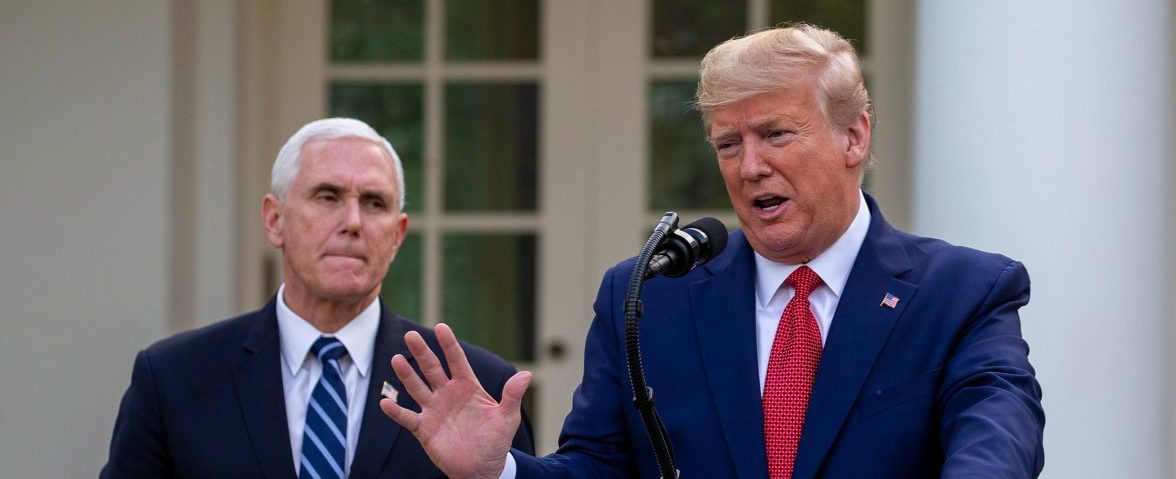The main factors that will determine the outcome of the 2020 US presidential election are the state of the US economy and the Democratic Party’s ability to mobilize its base. At the end of 2019, my colleagues and I prepared a scenario-based forecast on the probability of the Republican or Democratic victory in the presidential election and identified these two factors as decisive for the election outcome.
The pandemic has already had a major impact on the presidential campaign. The US economy was on the brink of recession at the beginning of 2020 but it was the pandemic that has triggered irreparable consequences threatening to undermine the entire economic growth which Trump intended to use as a basis for his reelection. This is why the White House administration is pressuring key US employers, especially in industry, to restore the plants’ operation, thus running the risk that their most vulnerable employees may lose their lives as a result of being exposed during the pandemic. However, Trump sees the slowdown of economic activity as a more serious threat that may plunge the country into a protracted economic crisis. Apart from undermining his chances of reelection, it may also result in a great number of casualties due to the lack of stability, jobs or prospects.
While the White House has yet to gain control over the pandemic, the Democratic Party is trying to take advantage of the panic in society. The Democrats regard the pandemic and the emerging economic crisis as an opportunity to prevent Trump’s reelection and are putting forward a platform that could be summed up as: “We could have done it differently, and we could have done it better.”
The rivalry of Democratic candidates has produced a clear leader: former Vice President Joe Biden, who has left Bernie Sanders far behind in the primaries. Some experts believe that the need to cancel his meetings with voters has deprived Sanders of his trump card: fervid public addresses. However, a more important reason was that the Democratic establishment chose Biden and made candidates close to the mainstream drop out and endorse Biden. That was the choice made by Pete Buttigieg, Michael Bloomberg, Tulsi Gabbard, Kamala Harris, Amy Klobuchar and Beto O’Rourke. Elizabeth Warren has also dropped out without endorsing anyone but it cannot be ruled out that she will support Joe Biden too.
Biden has benefited from the fact that during the pandemic, as in any crisis, fear of change is the prevailing sentiment in society. In such conditions social groups are more loyal to the concepts, values and political priorities that are more traditional to them. Sanders, who was trying to oppose the mainstream, has lost in this role because now preference is given to a person who relies on traditions and is closer to the nucleus of democratic values. In this situation, Americans see Joe Biden as such a person.
At the same time, 85 percent of Republican voters are still ready to vote for Trump in the upcoming election. The Republican Party was consolidated in the Congress and Senate in the course of the impeachment proceedings. Now everything will depend on two factors: the extent of the economic crisis in the wake of the pandemic and the efficiency of the measures undertaken by the administration to prevent it. The declared financial incentives have revived the US stock market to a certain extent. A lot will depend now on how resolute the administration’s actions will be to mitigate the impact of the pandemic and launch America’s industrial centers. Currently, Trump is regarded as a fighter against an external threat; he refers to the pandemic as the “Wuhan virus” underscoring that the threat arrived from China and requires a US response. The nationalist card may work in his favor at the elections again.
One consequence of the current measures could be still greater decoupling of the United States and China, severing of the existing added value links and transfer of US production facilities from China to the neighboring countries or to the United States itself. This will smooth the way for Trump’s reindustrialization program and, if the pandemic follows a favorable scenario, will restore the number of jobs in the United States by the November election.
The question remains if Biden will become the energy center of the Democrats’ campaign. Although he beat Sanders, his weak point, like Hillary Clinton’s, is his obvious elitism, affiliation with the establishment, lack of original ideas and a doubtful advantage over Trump in the election. Will Biden be able to inspire young people or will they stay at home on election day, as was the case with Clinton? We can see from the recent developments that the economic crisis and the Democrats’ rallying around Biden are changing the electoral picture in the United States and reducing Trump’s chances of reelection that he had at the beginning of 2020.
Original publication valdaiclub.com












